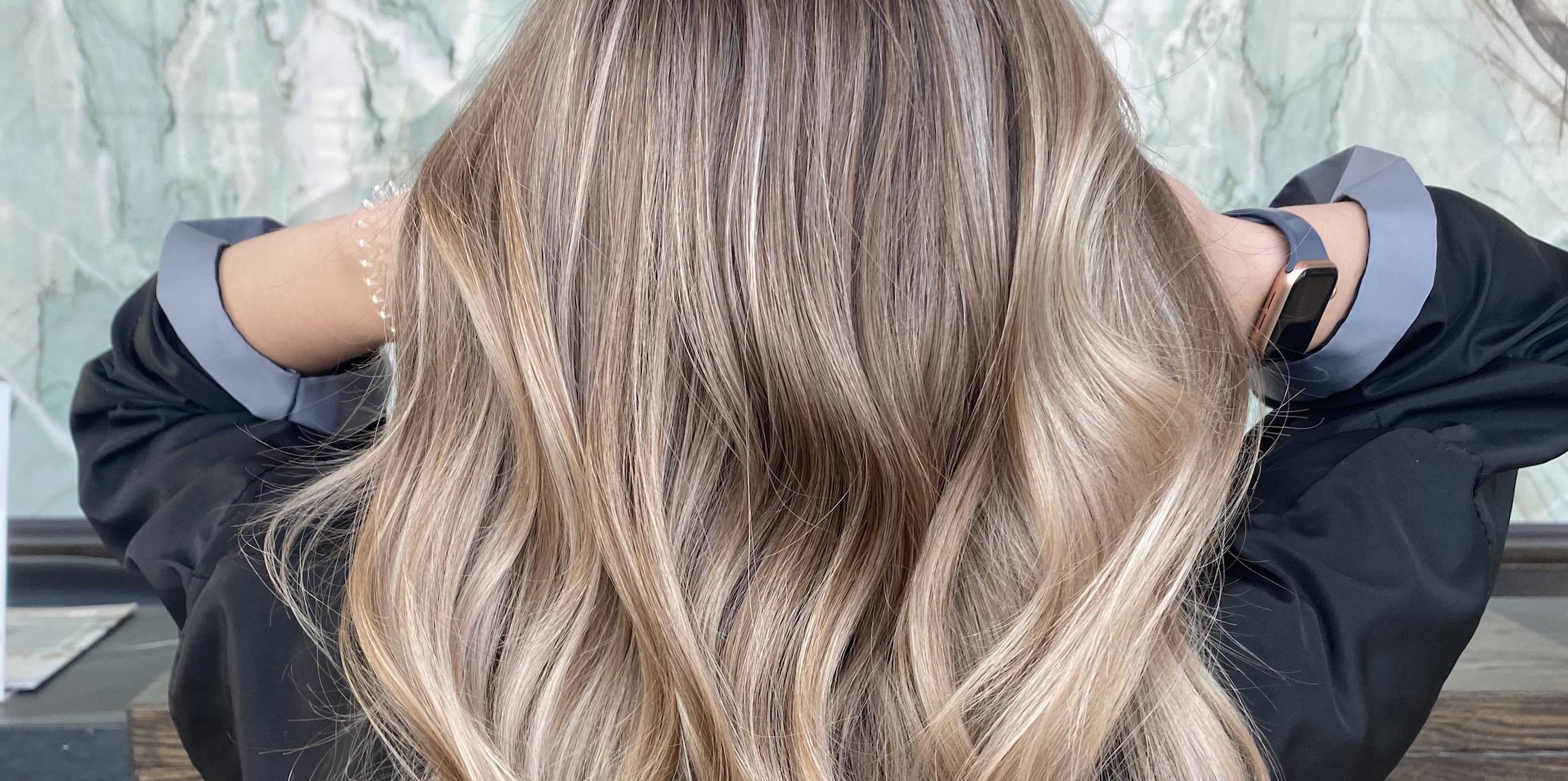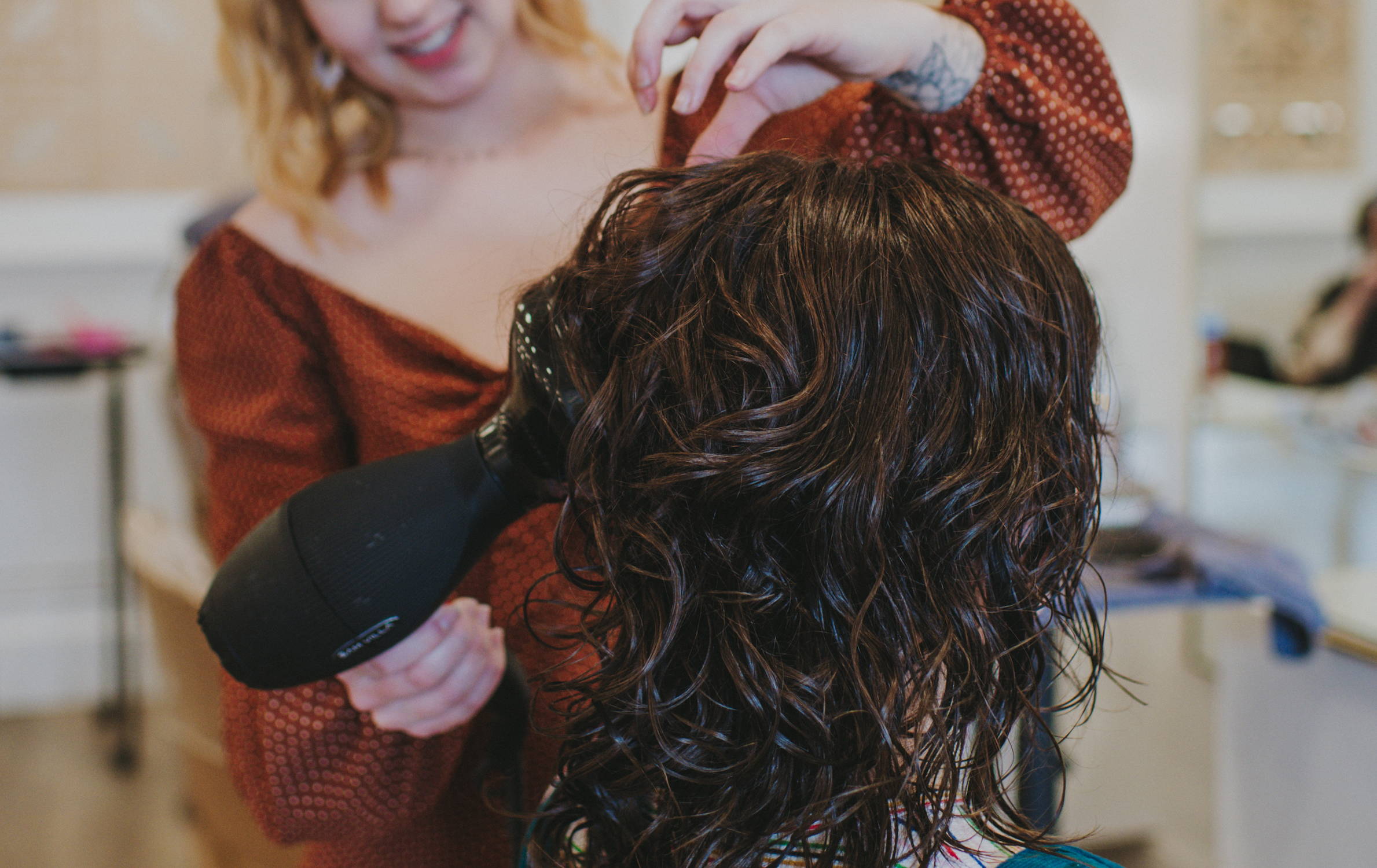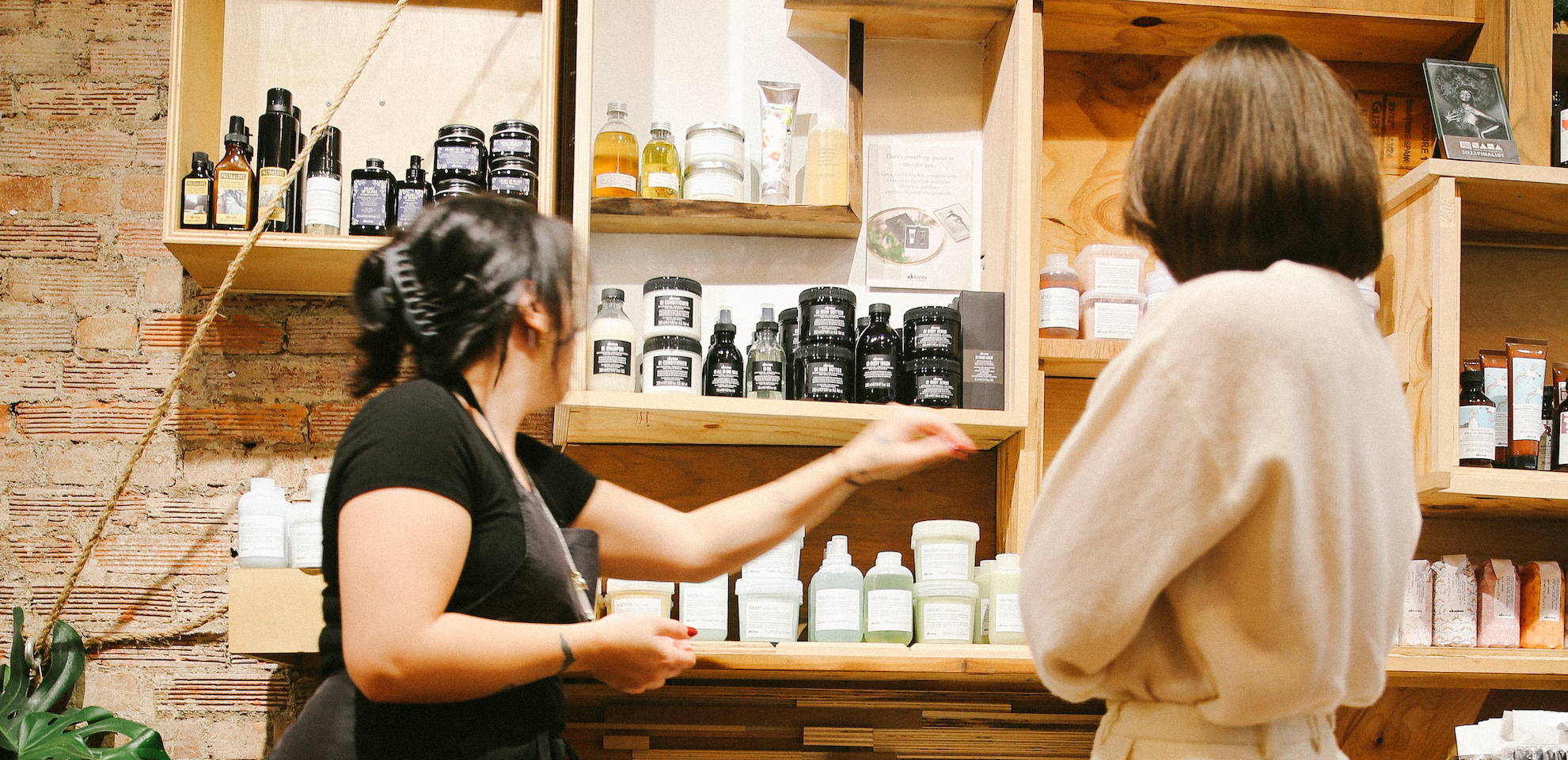Free Carbon Neutral Shipping On Orders $75+, Plus Free Samples!
Buy Now and Pay Later in 4-interest free installments with Klarna
Free Carbon Neutral Shipping On Orders $75+, Plus Free Samples!
Buy Now and Pay Later in 4-interest free installments with Klarna
Rendre la beauté durable
We Are Circular
Lien vers vos collections, vos ventes et même des liens externes.
Refer Your Friends and Get a Free Gift!
Whether you want to add length, volume, or just temporarily change up your look, hair extensions are a fun and easy hair styling option. On the other hand, without the proper care and maintenance, extensions can leave you with matted strands, or irreversible damage to your real hair and scalp. But fear not, because your hair extension care doesn't have to be complicated or time-consuming. With the right tips, you can get the most out of your extensions and keep them looking healthy for months. From washing to styling, we’re telling you how to care for your hair extensions ahead!
To maintain the longevity of your hair extensions and avoid damaged hair in the long run, proper care is crucial. Just like natural hair, hair extension maintenance requires a regular care routine to keep them looking their best. Using the right hair care practices will keep your hair extensions soft and shiny, and frizz and tangle-free for the long haul. On the other hand, not taking care of your hair extensions can lead to matting, tangling, dry hair, and damage to both your extensions and natural hair. Investing time and effort in caring for your hair extensions not only preserves their quality but also helps you get the most out of your investment.

Brushing your hair extensions regularly is the key to their longevity and preventing tangling or matting. Your extensions don’t receive the natural oils produced by your scalp, so regular brushing helps distribute your hair's natural oils from the roots to the ends, keeping them nourished and healthy-looking. Make it a habit to brush your extensions at least twice a day, preferably in the morning and evening. A regular brushing routine helps prevent the hair from tangling or becoming matted, especially if you have longer or thicker extensions. Use a wide-toothed comb or a brush with flexible bristles that are strong enough for extensions but won't tear through them. Begin at the ends of the hair and work your way up, gently detangling any knots or snags. Avoid brushing directly from the roots to minimize tension on the extensions and your natural hair. Brush all tangles out after each use and have a good quality detangling brush with you at all times.
When it comes to hair extension care, one of the most crucial aspects is avoiding heat damage. Heat styling tools like straighteners, curling irons, and blow dryers can be incredibly damaging to both natural hair and extensions. But using these tools is sometimes unavoidable, so it’s essential to prime your strands with heat protectant products first. These products create a protective barrier that shields the hair from the direct heat and minimizes the potential damage. Opt for medium to low heat settings on your styling tools and pre-dry your extensions before styling whenever possible. Get your extensions 80 to 90 percent dry by air drying or finger drying with a blow dryer before using a round or flat brush to style them. This reduces the amount of pulling on your extensions, as well as the amount of direct heat you’re subjecting them to.
Properly washing your hair extensions is the next step in your extension care routine. Opt for sulfate-free shampoos and conditioners. Sulfates are harsh chemicals commonly found in many hair care products, and they can strip the natural oils from your extensions, leading to dryness and tangling. Look for products specifically formulated for hair extensions or those labeled as sulfate-free. A gentle cleansing sulfate-free shampoo will rid your extensions of oil and dirt without stripping the quality and color away from the hair. Wash your hair while your extensions are in to ensure you’re taking care of the hair and scalp underneath. It’s important to note that excessive washing can cause your extensions to loosen and shorten their lifespan. Wash and condition your hair extensions at least every other week and at a minimum once a month. Start by gently detangling your extensions using a wide-tooth comb or a brush specifically designed for extensions. By now you might be wondering, ‘Do I need to oil my hair extensions?’ If your strands are extra thirsty, yes you should. Follow your conditioner with hair oil.

Hair, including hair extensions, are most fragile when wet, so it is important to dry your hair after washing. Handle your extensions gently and squeeze out the excess water. Do not under any circumstances vigorously rub your extensions with a towel. Rubbing or pulling the extensions can lead to tangles and even breakage, so it's best to pat them with a microfiber towel or a soft cotton T-shirt. The rough texture of a regular bath towel can cause friction and damage the hair cuticles. After most of the water has been absorbed and a heat protectant has been applied, your hair extensions should always be blow-dried at the root to prevent excess tension on your natural hair. Keeping the roots of your extensions dry can also prevent molding, premature slippage, or matting.
How you store your hair extensions when they’re not in use goes a long way in determining how long they will last. Properly storing them is crucial for maintaining their quality and ensuring they remain in excellent condition for as long as you have them. Make sure your extensions are clean and dry before storing them. Any leftover product residue or moisture can lead to mold or damage over time. Store your extensions in something that will protect them from dust, tangling, and any potential damage. We recommend using a dedicated hair extension hanger or a clip-in extension storage bag. These specialized storage hangers and bags allow you to hang the extensions, keeping them protected, organized and untangled. If you don't have access to these specific storage options, you can alternatively use a clean, breathable fabric bag or a soft, satin pillowcase.
Be sure to adhere to your stylist’s schedule for regular hair extension maintenance and proper removal. By having your extensions regularly checked and trimmed, they’re likely to stay looking as good as new throughout the time you are wearing them. This is especially important if you’re using them while you’re waiting for your hair to grow. Maintenance appointments are also a great time for your stylist to make any adjustments and check for any obvious issues. And most importantly, sticking to your regular maintenance appointments will keep your natural hair as healthy as possible during the wear of your extensions.

When it comes to caring for your hair extensions, avoiding chemical treatments is an absolute MUST for maintaining their longevity and quality. Chemical treatments such as perming, relaxing, or bleaching your hair causes damage to both your natural hair and the extensions. That’s why it’s important to see a professional anytime you’re styling with hair extensions. Whether that means installing, removing, cutting or coloring them, a hair stylist can assess the compatibility of your extensions with such treatments and provide expert advice on alternative options that won't compromise the integrity of your extensions.
The most important thing to remember about caring for your extensions is to treat them like you do your own hair. Use our tips and sulfate-free hair products to care for and style your extensions. If you’ve been struggling with hair that won’t grow, or just want a change, speak to a professional at a Davines salon near you to see if hair extensions are an option. We’ll help you make the most out of your extensions and keep them looking healthy for months.
by Jaclyn LaBadia, featured contributor
S’abonner pour rester à l’affut des ventes et promotions, les lancements de nouveaux produits et bien plus…
Abonnez-vous à notre newsletter pour bénificier de la livraison gratuite sur votre première commande.
La soumission de ce formulaire confirme que vous acceptez de recevoir les avis de lancement, les promotions et les nouvelles marketing de Davines North America Inc. par courriel.



Laisser un commentaire
Les commentaires sont approuvés avant leur publication.